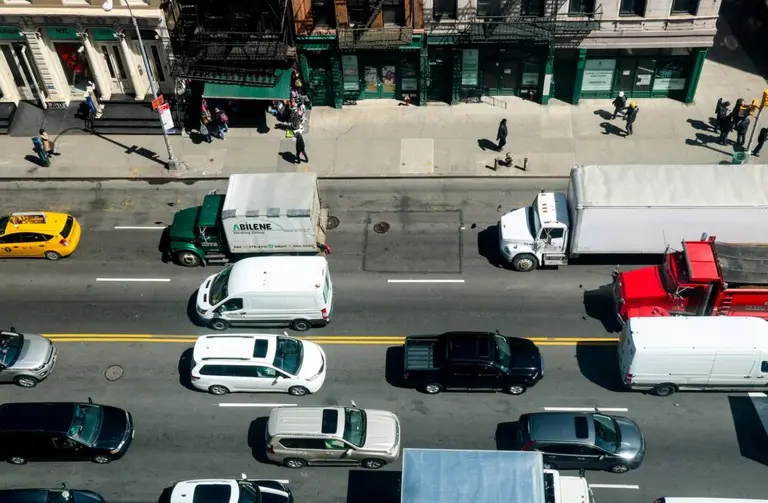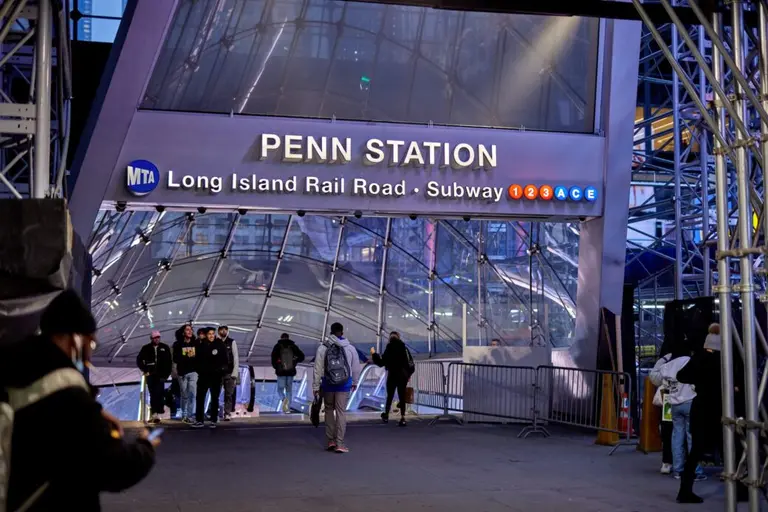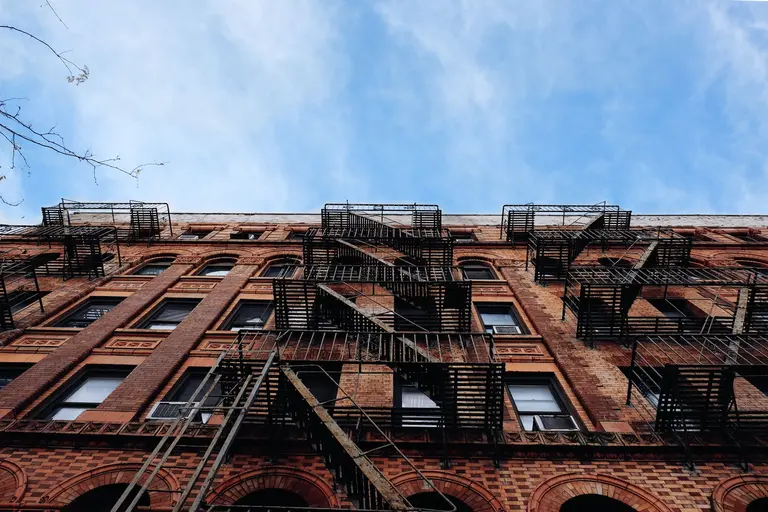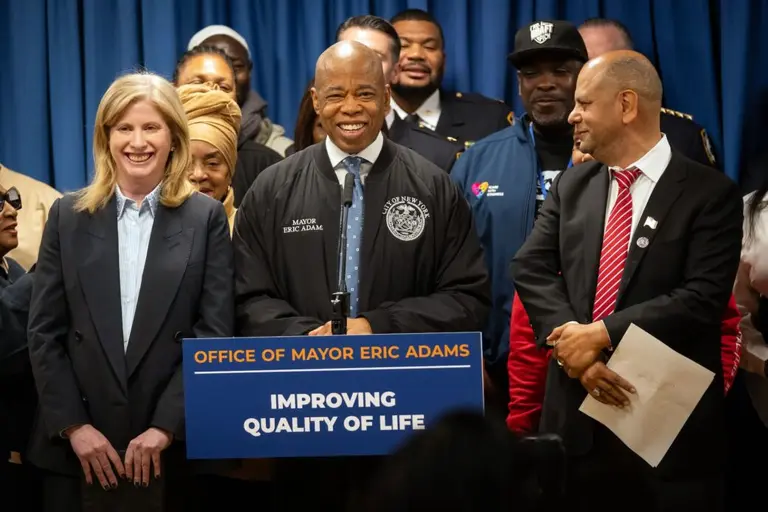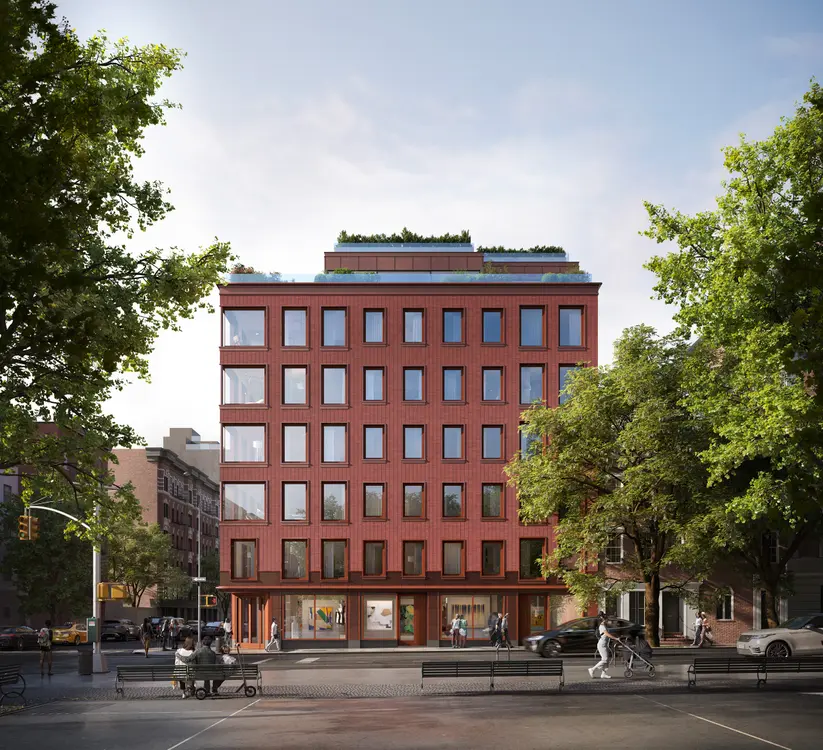New York City officially lifts dancing ban
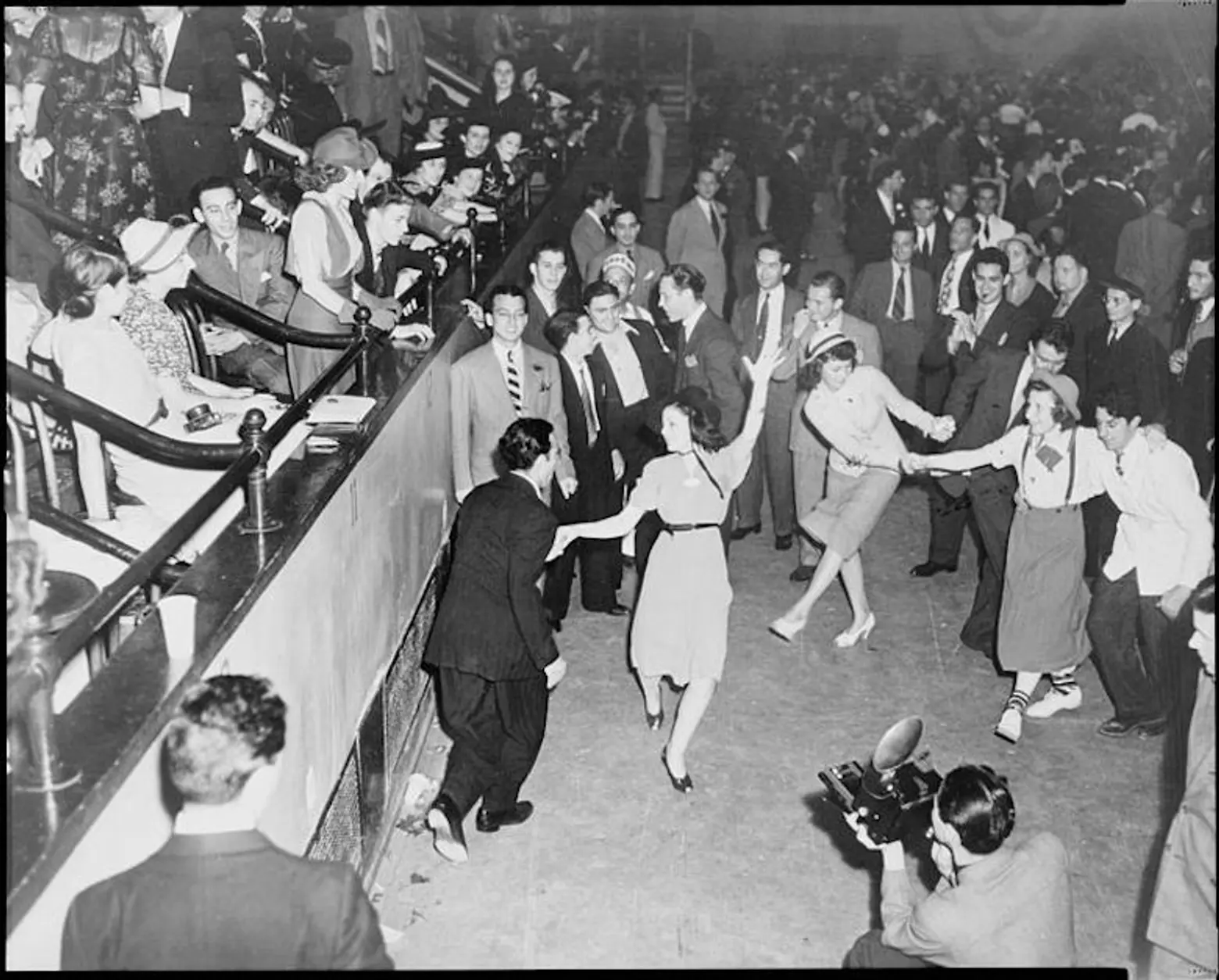
Couples jitterbug dancing in the 1930s. Photo courtesy of the Library of Congress Prints and Photographs division.
New York City got its groove back. The City Council this week voted to end zoning regulations that ban dancing in nightlife establishments in many parts of the city. Although officials repealed the outdated Cabaret Law in 2017, zoning rules were not revised, leaving much of the Prohibition-era law in place at small bars and restaurants in 80 percent of the city. On Thursday, the Council passed Mayor Eric Adams’ City of Yes for Economic Opportunity plan, which includes updates to zoning allowing dancing and live entertainment as of right in commercial establishments.
Created during Prohibition, the 1926 Cabaret Law targeted jazz clubs during the Harlem Renaissance. As 6sqft previously reported, the city banned saxophones and other jazz instruments at unlicensed establishments during this period, racially discriminating against black performers and musicians. A “cabaret card” was required for performers, which led to musicians like Charlie Parker, Thelonious Monk, and Billie Holiday being unable to perform.
The odd Cabaret Law remained on the books for many years. Even after the 2017 repeal of the law, the underlying rezoning code prohibiting dancing outside manufacturing zones and certain commercial zones remained, leading many nightlife establishments to operate without necessary approvals for dancing and live entertainment.
In 2021, Council Member Keith Powers, Manhattan Borough President Mark Levine, and Mayor Eric Adams proposed eliminating the zoning provisions; the policy was added to the City Planning’s City of Yes Economic Opportunity proposal last year.
“Abolishing the Cabaret Law in 2017 was an important first step, and now we must finally fully repeal the antiquated zoning and unfair regulation that has been used to discriminate against Black, Brown, and queer nightlife establishments,” Levine said in a statement. “New York can’t be the City of Yes if we still say no to dancing.”
With the passage of the provision on Thursday, dancing and stand-up comedy will be allowed at all commercially zoned eating and drinking establishments, in scale with their venue size.
As Council Members Powers, Chi Osse, and Erik Bottcher wrote in a Crain’s op-ed last month, the zoning changes “end unbalanced enforcement, bring establishments into compliance and eliminate confusing regulations about which locations qualify. The pols added the action “would simply ensure that it’s legal to stand up and dance in places where music is already allowed.”
Large venues that exceed 200 people are still subject to separate regulations on where they can be located and all establishments remain subject to noise, fire, security, and health codes.
“New York City is the city that never sleeps and the center of nightlife. Today’s vote uplifts our nightlife community, ends discriminatory practices, and provides clarity to our small businesses,” Powers said in a statement on Thursday. “Thank you to Mayor Adams, Speaker Adams, City Planning Chair Dan Garodnick, and to my colleagues for supporting our nightlife industry. It’s time to let New Yorkers dance!”
The broader City of Yes measure approved by the Council on Thursday expands manufacturing areas and removes restrictions on where businesses can set up shop.
“In our 24/7 city — the birthplace of hip-hop, salsa, and disco — the freedom to dance is essential,” Jeffrey Garcia, the executive director of the city’s Office of Nightlife (ONL), said in a statement.
“These changes overturn outdated rules from the 1960s and fulfill a key priority from ONL’s 2021 recommendations to finally repeal the last vestiges of the discriminatory Cabaret Laws. We are grateful to Mayor Adams, the City Council, and countless advocates across the nightlife community who continue to push for equal access to dancing for all New Yorkers.”
RELATED:



